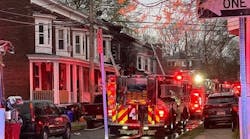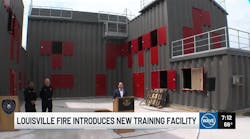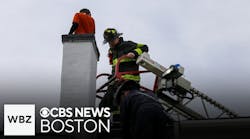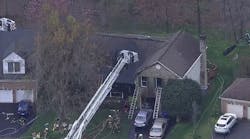At a recent seminar, the class was engaged in a discussion concerning the characteristics, traits and behaviors they most value in their leaders. They eventually described what probably constituted the perfect leader.
As the discussion wound down, one student announced that he wants a fire chief who "always had his back." He explained that he wants the chief to readily defend the department and the members; when policy makers were wrong, he thought, the chief should tell them so; and, finally, the chief should appeal directly to the public when decisions are being made by city officials that could diminish the safety of the community. He also said that he wants "a chief with a spine" when it comes to budget issues.
The follow-up question the instructor asked consumed the next hour. That question was, "If your fire chief does that, who can your chief depend on to have his or her back in the process"?
One reason this was a profound discussion is that fire chiefs are finding themselves in this political and operational dilemma more today than perhaps ever before. Public safety consultants are being retained by cities to study their fire departments and supposedly make recommendations for improving services and reducing costs. These consultants pass themselves off as public safety experts with an objective eye and keen knowledge of outcome-based service delivery and support systems.
In reality, these consultants are nothing more than hired guns with a sole purpose — cutting budgets. Public safety is an attractive target for these "experts" because such a high percentage of a city's operating budget goes to funding the fire and police departments. Elected officials don't want to appear to be weak on public safety because it could get them un-elected. The recommendations contained in the consultants' cookie-cutter studies can give those elected officials political cover by misrepresenting reductions in staffing levels, numbers of fire stations, etc., as improvements in the efficiency and effectiveness of the department rather than a reduced level of service and safety to the public. It's understandable that fire departments are being asked to share the financial pain this economy has inflicted on government, but most people would say that it's unethical for a fire chief to not share with city officials and the public the truth about the impact of service reductions on the safety of the community.
This scenario played out recently in the Midwest when a consulting firm produced a study for a city. In addition to several suggested changes in management practices, the firm found that the department would be more efficient and effective if it eliminated at least one fire station and some emergency response units. The fire chief disagreed with some of the recommendations in the study and shared that opinion with the city manager. The chief explained that the recommendations would have a negative impact on the safety of the community and the safety of his firefighters, and that the public should be made aware of that
The fire chief was placed on administrative leave for a couple of weeks and then he was fired. This was a fire chief who had an excellent reputation, significant experience, had been the president of the state fire chiefs association and served in other significant positions in the state's fire service. The chief displayed positive leadership, supported his department and the safety of his firefighters, shared his professional opinion about the impact of proposed budget reductions and reduced service levels with city officials, and bottom line — he lost his job because of it.
This is just one story; many similar stories could be shared in this column. The fire chief in this situation did the right thing and is not brooding about what happened. In fact, if he chooses to be a chief somewhere else, he won't have any trouble doing that.
There's no doubt that the buck usually stops with the fire chief, and it's great that fire service members have such high standards by which they judge their leaders. However, if there is the expectation that those leaders jeopardize their own positions, the well-being of their families and even their futures, then members of fire departments must do all they can to support their leaders in the face of such severe retaliation. There are going to be more of these situations in the future. Consulting firms smell dollars and they are teaching seminars, conducting podcasts and producing studies that recommend significant reductions in fire department budgets that will absolutely diminish public safety and firefighter safety. Their efforts also include a renewed emphasis on transitioning to public safety departments by combining fire and police personnel and assigning the employees to share the two roles.
The public trusts their firefighters more than any other public servant. Members of fire departments typically have significant influence in their communities. Using this influence and public trust to prevent anti-public safety consulting firms from being brought into your city would probably be a good investment. If that's not possible, then using that trust and influence to protect fire department leaders who take them on becomes a must.
If we truly value fire chiefs who have the department's back (and we should), then we owe them a level of support when things get tough. It's a legitimate question to ask: Who's got the chief's back?
DENNIS COMPTON, a Firehouse® contributing editor, is a well-known speaker and the author of several books, including the When in Doubt, Lead series. He is also co-editor of the current edition of the ICMA textbook Managing Fire and Rescue Services. Compton was the fire chief in Mesa, AZ, for five years and assistant fire chief in Phoenix, AZ, where he served for 27 years. Compton is the past chair of the Executive Board of the International Fire Service Training Association (IFSTA) and past chair of the Congressional Fire Services Institute's National Advisory Committee. He is also chairman of the National Fallen Firefighters Foundation Board of Directors and the chairman of the Home Safety Council Board of Directors.





